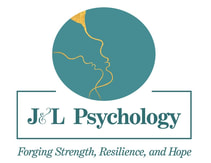|
By: Rachel Goldman, PhD Self-compassion is a crucial element in surviving (and eventually thriving in) parenthood. Loosely defined, it is the act of giving yourself patience, kindness, empathy, love, and understanding as you move through the intensity and complexities of your “new normal.” Translating self-compassion into reality, however, often is fraught and filled with missteps: “should have” thoughts, “wish I were like…” self-comparisons, second-guessing, and self-judgment. Why is it so difficult for parents to give themselves grace? Perhaps it’s because parenthood puts your before life in a washing machine – swooshing everything around, soaking your prior self, and spinning things on high until you don’t know which way is up. You are jolted back into reality, except, now, everything has changed. For many, your before ways of coping kick into gear – pushing through challenges, casting aside feelings that don’t feel useful, relying on logic rather than intuition, and setting unrealistic expectations. You charge into the unknowns of parenthood with a steadfast internal image of how you want to be. The epitome, in your head, of what it means to be a good parent. Seemingly out of nowhere, though, you hit the invisible brick wall. The days where nothing ever feels like enough. When you drop one (or many) of the precarious balls being juggled in the air. In these moments, the before ways of coping fail you. The sense of inadequacy can feel crushing, sending you into a spiral of defeat, self-criticism, and shame. You find yourself thinking that you must be doing something wrong, that you aren’t a good parent, and that this isn’t ever going to get easier. These feelings are infused with familial, societal, and cultural narratives -- polarizing belief systems around the “right” or “wrong” ways to care for your child and collective voices blurring the reality around best parenting practices. Shame is insidious, sometimes subtle and other times more overt, leading you to believe that you don’t deserve to be gentle with yourself. You dig deeper to get through, even as the price to yourself mounts.
But maybe the antidote is acceptance of this new reality: The old ways of coping aren't always meant to work forever. Parenthood humbles you to your core and the new “you” is forever transformed. Self-compassion may be the only way through this uncharted territory, with understanding and empathy for the new “you” navigating this beautiful, painful and overwhelming transition. Sometimes this journey is an independent one and other times it is in tandem with a partner who is also encountering the tumultuous waves of parenthood change. The darkness can be very dark in those moments. Yet this hard season of life will pass. Self-compassion is a vehicle not only for survival, but for reconnecting with yourself. This is crucial for so many parents who have lost parts of themselves in the adjustment to parenthood. Through adaptation comes growth, realizations, and new ways of coping. You may find a different path less oriented to success or failure as a measure of worth, and instead, toward a path where you feel like a happier “you.” A more patient, grounded, and secure “you.” A “you” that relishes the small parenting wins and gives yourself a big hug when things inevitably go off the rails. Giving yourself grace when so much is at stake can feel counterintuitive. To relinquish control, trust that you are doing the best that you can as a parent, and believe that your best is good enough. But your compassion for yourself is the single most important relationship to nurture. It’s the one your children will see, take in, and reflect within their budding selves. There may be no greater gift that you can give them. So let this be a reminder that you deserve your own love just as much as everyone else does. Your body, mind, heart, and soul will thank you. And along the way, you may find that you become the parent you always wanted to be. (And in those dark, scary, overwhelming moments, we are here to help.) Dr. Rachel Goldman, is a licensed clinical psychologist at J&L Psychology and sees clients virtually in New York and California. With specialized training from Postpartum Support International and the Gottman Institute, she focuses on perinatal mental health and supporting parenting relationships while helping individuals and couples adjust to the stresses of parenthood. To schedule a consultation, please reach out to J&L at (646) 609-6323 or [email protected]. Comments are closed.
|
Categories
All
Archives
March 2024
|
Home The Practice FAQs Practice News & Blog Stress & Anxiety Depression Trauma Couples Therapy Child Therapy, Parenting Coaching & Family Therapy Self Development Treatment For Professionals Contact
J&L Psychology Group, PLLC302 5th Avenue, 11th Floor, #1112, New York, NY, 10001
(646) 609-6323 If this is a mental health emergency, please call 911, go to your nearest emergency room, or call or text the Suicide and Crisis Lifeline at 988. Stay up to date: |
Follow us on Facebook and Instagram:
© Copyright J&L Psychology Group 2021
|


 RSS Feed
RSS Feed
